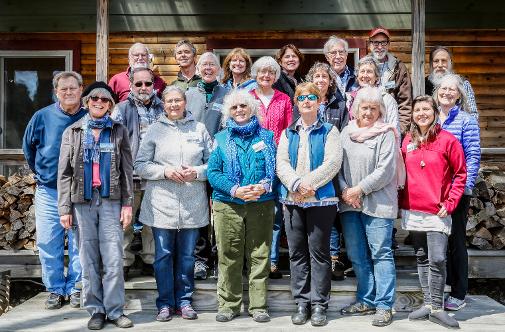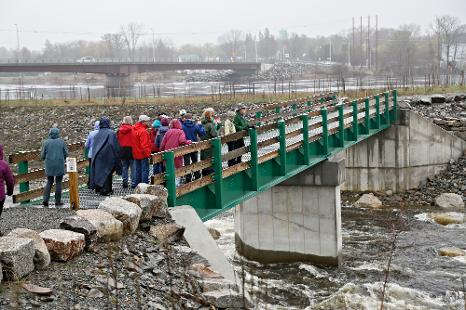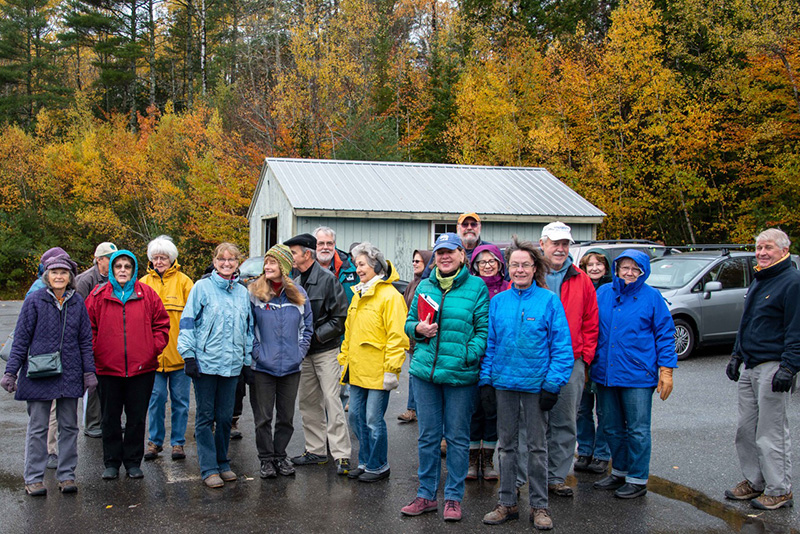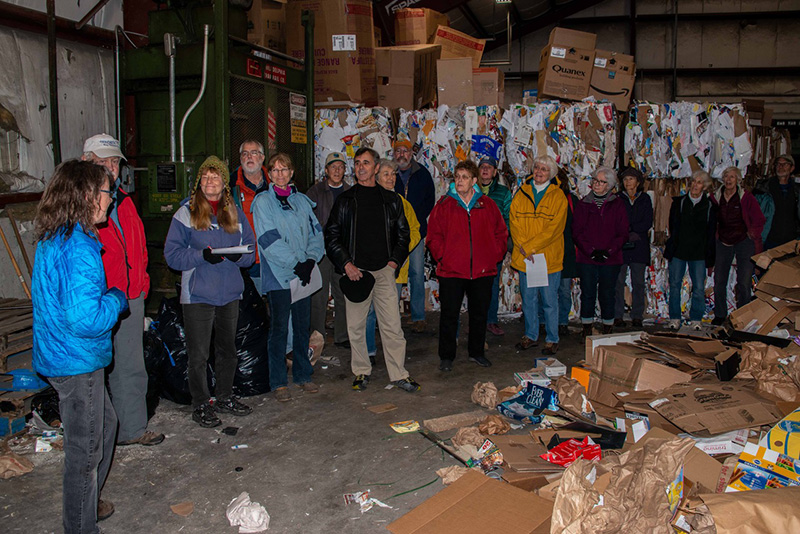Penobscot Bay Stewards Program ARCHIVE
Water Quality Monitoring of Belfast Bay - 2019
Several Penobscot Bay Stewards have begun monitoring various points in Belfast Bay. Read more about it on our News page. Stewards participating in monitoring are committed to weekly readings Thanks go to John Tipping for sharing his equipment, Leo Shea for leading the Water Quality Team, and team members Sharon Besso, Joe Duggan, Paul DeOrsay, Sally Bennett, Barbara Bell, Susan Connolly, Susan Dexter, Caryn Converse, Martha Stamp, Paul Eagle, and Rick Fitzsimmons.
Enjoy photos our the monitors here:
See a slideshow of our 2019 Penobscot Bay Stewards in action on our Multimedia page!
About the Pen Bay Stewards Program - 2018

2018 Stewards

Participants learn about:
- Wabanaki history, culture, current events
- Gulf of Maine fisheries
- Atlantic puffin restoration
- Island ecology and economics
- Terrestrial and marine biodiversity
- Maine coastal geology
- and the health of the Penobscot River, Penobscot Bay, and Gulf of Maine.
Belfast Transfer Station, the Inside Story

On October 25, 2018, the Belfast Bay Watershed Coalition arranged a tour of the Belfast Transfer Station for its team of Penobscot Bay Stewards, people who took a month long “crash course” in May in the nature, economics, and social history of the Penobscot River watershed and bay.
Station Manager Sandy Carey led the group of 29 outside and inside the facility to see first hand all the matter that is either recycled, reused, or sent for disposal. The Station is operated by two full-time staff, Sandy Carey and Steve Roberts, and two ¾ time bailing operators. Bales compress a mountain of cardboard or paper or plastic into a 1200-pound bale, 4’x4’x3 ½‘, for sale to markets.
Sandy and Steve are deeply committed to conservation and recycling, and Sandy continuously searches for markets to transfer materials to. Her goals are to find markets that are close by or local, which truly reuse and recycle, or if they incinerate material, that the smoke is cleaned and the ash recycled. Her perseverance in finding markets reflects in the results: recycling revenue pays 28% of Transfer Station costs, including paying staff. User fees pay the remaining 72%. No funds come from the City budget.
Smaller stations like Swanville and Searsport transfer their recycling to the Belfast facility for further processing and transport. Some of the markets currently include:
- Plastic is sold to Dragon Cement in Thomaston as a component of cement.
- Glass, crushed to tiny grains, is currently trucked to East Belfast to a place needing clean fill; it also can be used to fill roadbeds under asphalt.
- Returnable bottles are crushed, melted, and made into new bottles.
- Aluminum cans are easily made into new cans, sometimes back on the shelf within 60 days.
- “Tin cans” are separated into steel and tin for making new cans.
- Paper is sold to make more paper products.
- Cardboard and paperboard are sold for making new cardboard and paperboard.
- Tires are picked up by BDS for shredding and repaving use.
Outside, the Stewards learned that the huge brush pile of leaves, small branches, and garden waste is composted for a time and then offered free to the public as garden soil. Next to it, the pile of tree trunks and huge branches accumulates until it can be chipped into trucks and carried to SAPPI in Skowhegan. Other markets for chips include Stored Solar in West Enfield, a biomass plant converting wood chips to power and heat.
All hazardous substances are removed and recycled by different companies. Electronics and products containing mercury or other toxics are protected in a building to guard against leaching until they are trucked for recycling.
Large “roll-offs” the size of box cars collect demolition debris which includes a wide range of products like lawn furniture, carpeting, toys, windows, sofas, which fit no other category. These, and all unsorted “household rubbish” are trucked to DM&J Waste in Winterport, where they are further sorted and the unrecyclable rubbish sent on to Juniper Ridge Landfill in Old Town.

Sandy has currently found a cleaner, better place for non-recyclables, Fiberight in Hampden, which is opening in December. The state-of-the-art waste to energy (WTE) plant is designed to be environmentally safe and clean. Belfast, along with 130 other towns, withdrew its business with PERC, Penobscot Energy Recovery Company in Orrington, in favor of Fiberight. According to the Kennebec Journal, the Fiberight facility will be a first-of-its-kind facility not only in Maine, but in the US. Members have argued that this type of technology has been successful in Europe in over 300 instances. The contract will be a more lucrative alternative for towns as well. PERC’s opposition to Fiberight has been a major cause of its delay in opening, by blocking DEP approval for 9 months. (Kennebec Journal, 5-31-18)
Sandy is able to negotiate for Belfast partly due to her previous experience working for Midcoast Solid Waste Corporation in Rockport. Coupled with her strong belief in the ability of citizens to leave less of a footprint on the environment, she has created a system for dealing with 700 tons of municipal waste each year. Currently 30% to 35% of Belfast’s waste stream that goes to the transfer station is recycled. This does not include trash picked up by private haulers, who do not use the transfer station.
Nevertheless, Sandy wants to raise the level of reuse and recycling and makes constant efforts toward her goal. For example, she supports Belfast’s reduction of plastic bags and styrofoam, and she would like to see a Swap Shop created and staffed by volunteers. There is no space available for one now, so the space would have to be found and the swap shop built. Most important, it would need to be staffed by a dependable group of volunteers.
The Stewards came away from the Transfer Station feeling hopeful that they could contribute to keeping Belfast and surrounding towns from choking on trash. Ways to do this are to reduce the amount we buy, carefully store and separate hazardous waste, sort and deposit all our recyclables and waste at our local transfer stations. We should choose products made with recyclable materials and/or recycled content. And maybe some community volunteers will start a Swap Shop. We’ll see.
All photos by Gene Randall
Belfast Bay Watershed Coalition, P.O. Box 152, Belfast, ME 04915
info@belfastbaywatershed.org

